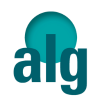Is your organization grappling with the prevention of sexual exploitation, harassment, and abuse (PSHEA)?
Read my 5 recommendations on good practices to follow, stemming from the recent report of the Independent Commission on the Review of the Allegations of Sexual Abuse and Exploitation Made against WHO staff in the Democratic Republic of Congo (DRC).
While there is no one magic solution to PSHEA, my takeaways, stemming from my work cross-sector, in particular with development organizations include:
- More women in leadership and diversity in hiring is critical. The presence of women at all levels from leadership down, makes an immediate difference. It is noteworthy that in this case, the Independent Commission found that of the 2,800 staff on that WHO Ebola programme, 73% were men and men held 77% of leadership roles. This would have been different if most staff had been women. See the fabulous Women in Global Health (WGH) Statement on Report of the Independent Commission on Allegations Sexual Abuse and Exploitation in the Democratic Republic of Congo.
- Reporting mechanisms cannot exist on paper alone. The Independent Commission found that even with reporting structures in place, there was a disparity between the number of alleged survivors who came forward during investigations and the total absence of reports at the institutional level. Reporting structures are living documents. When you put a process in place, and few folks come forward, this means there are likely barriers to reporting, not necessarily evidence that there is no PSHEA.
- Proactive, interactive training: I have seen far too many organizations put this on the back burner. Training early and often is not negotiable. In this case, the Independent Commission found that the first trainings on PSHEA organized by WHO took place five months after the declaration of the Ebola outbreak as an international public health emergency. Having PSHEA or sexual violence training as an afterthought will lead to harm, and unnecessary pain and violence. So, make it a priority. Now. Integrate this training into your staff retreat, your annual planning, your next proposal. In terms of quality of training, leaders need to build relational skills to receive reports of sexual violence; I often use role play, which has proven empowering for both leadership and staff, and builds better communication skills for leaders in other areas of their work.
- Prevention and response to SHEA should be integrated into all levels of progamme design and implementation. PSHEA risk analysis should be part of an organization’s core program cycle.
- PSHEA should be considered a leadership competency.
This report is but one of many cautionary tales.
I know and continue to work with organizations taking on the challenge to do better to live their values.
I founded ALG Consulting to build safer, equitable and more inclusive institutions, including organizations, workplaces and relations free of sexual and gender-based violence, where all women can thrive. I specialize in building the skills necessary to respond to sexual and gender-based violence, guided by values of integrity, compassion, accountability, respect and empowerment. I give workshops, conduct policy development, implementation coaching and other communications services that push thought leadership.
I know that together we can, and will build safer organizations where everyone can thrive. Until we meet, take care of yourselves, and eachother.
Here are other resources to support your work:
- WGH Statement on Report of the Independent Commission on Allegations Sexual Abuse and Exploitation in the Democratic Republic of Congo
- Interaction PSEA Training Package
- Canadian Centre of expertise on the Prevention of Sexual Exploitation and Abuse (DIGNA)
- The Safeguarding Resource and Support Hub (RSH)
- CHS Alliance
- Inter Agency Standing Committee

